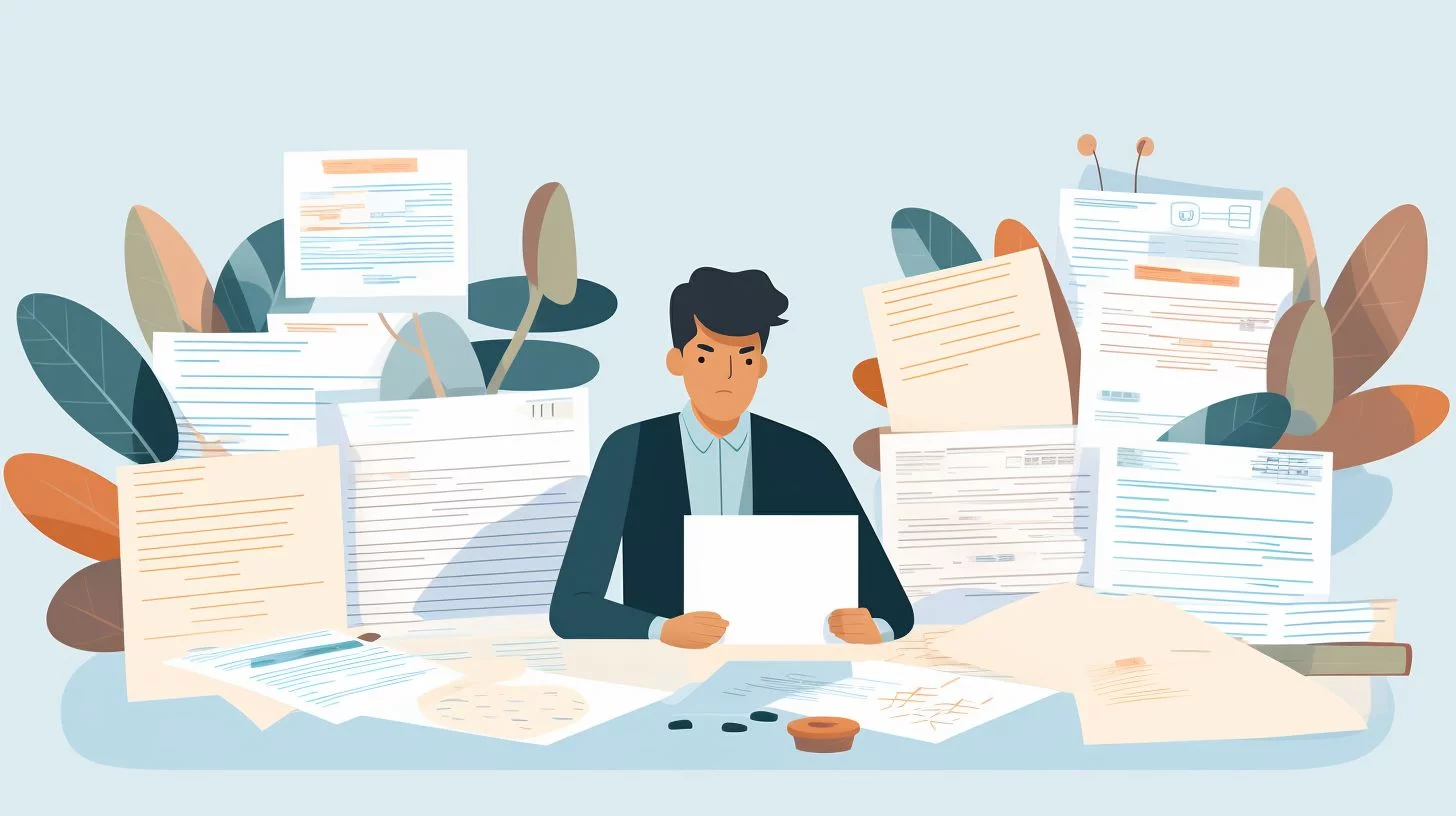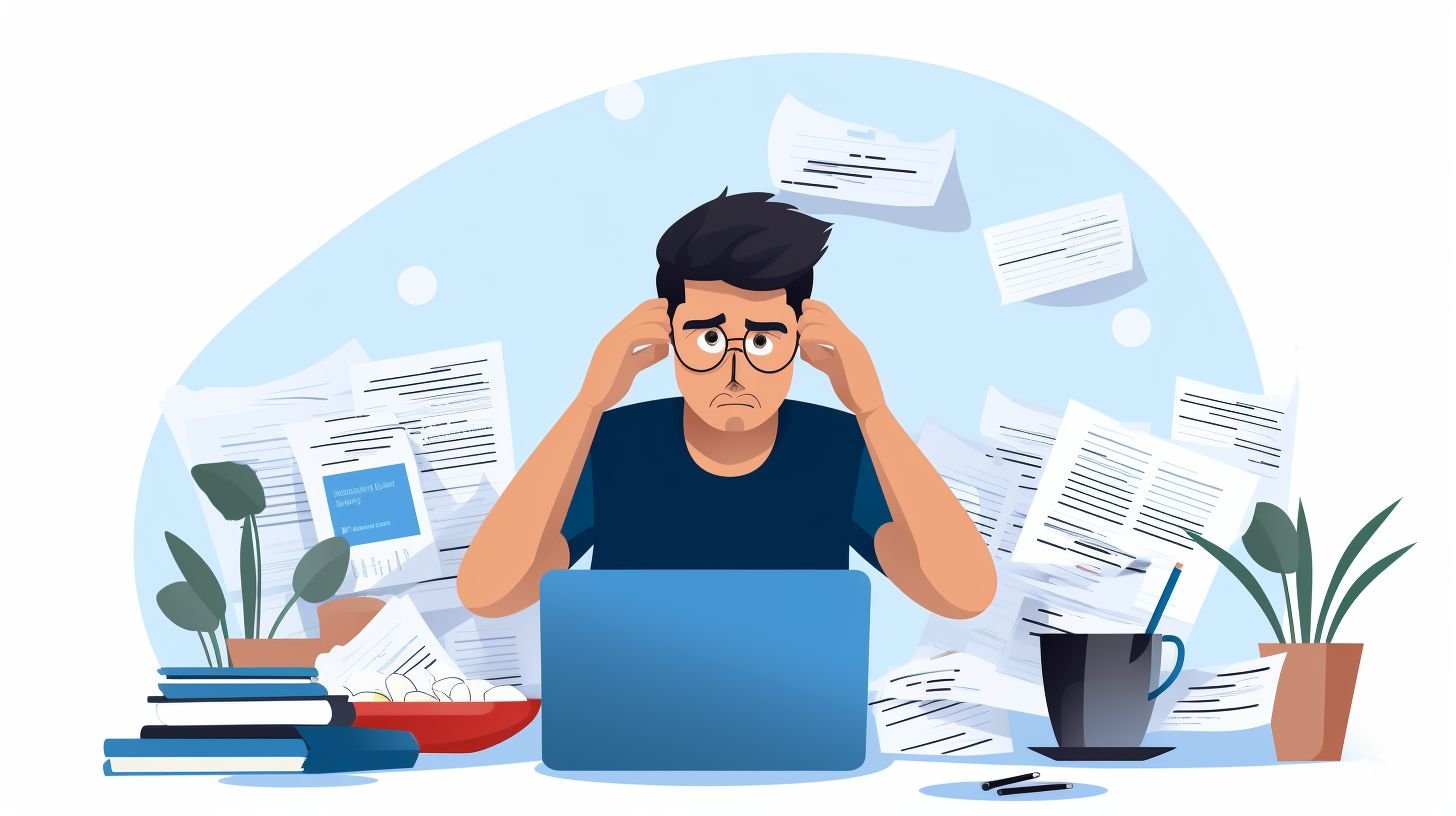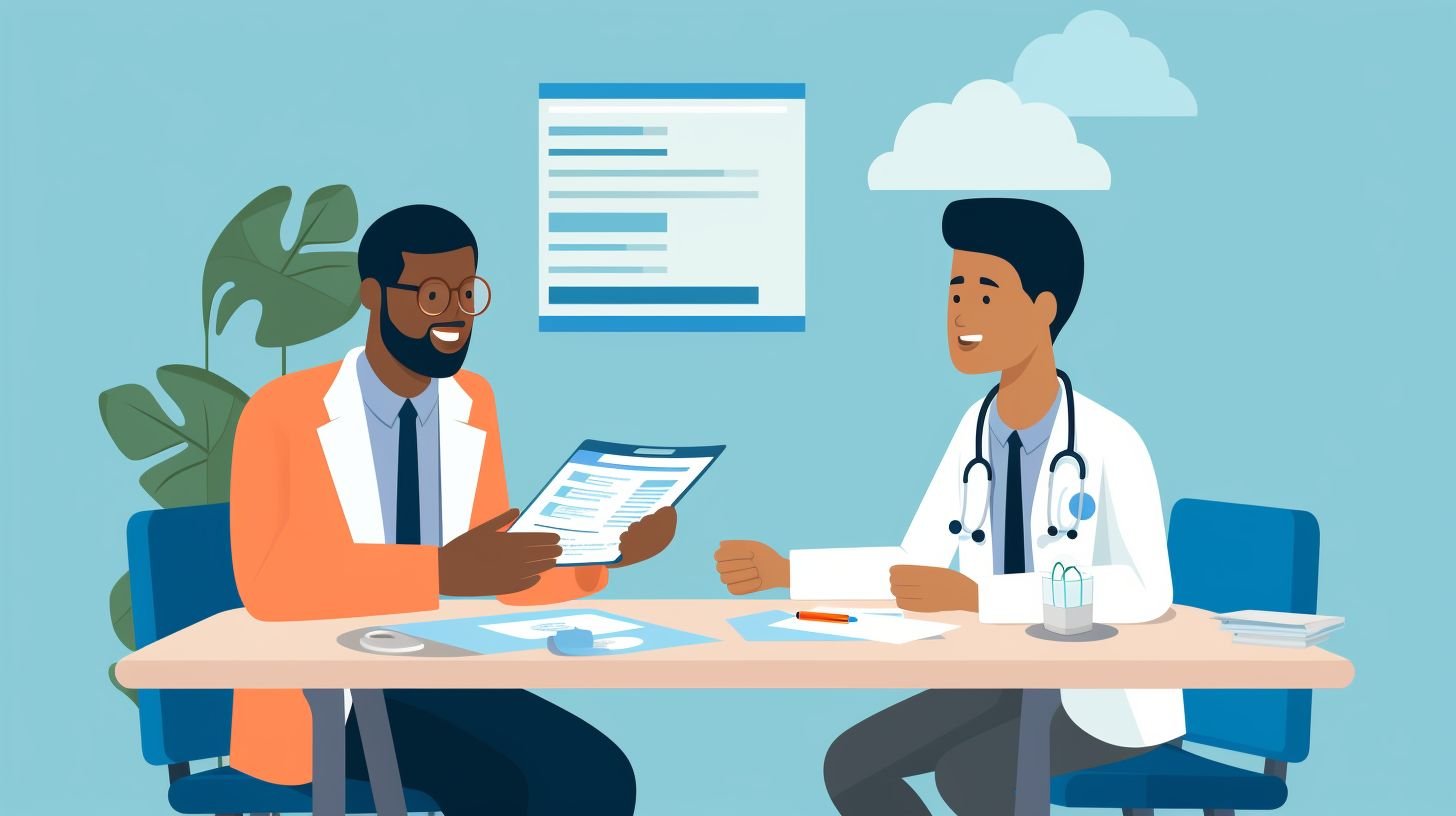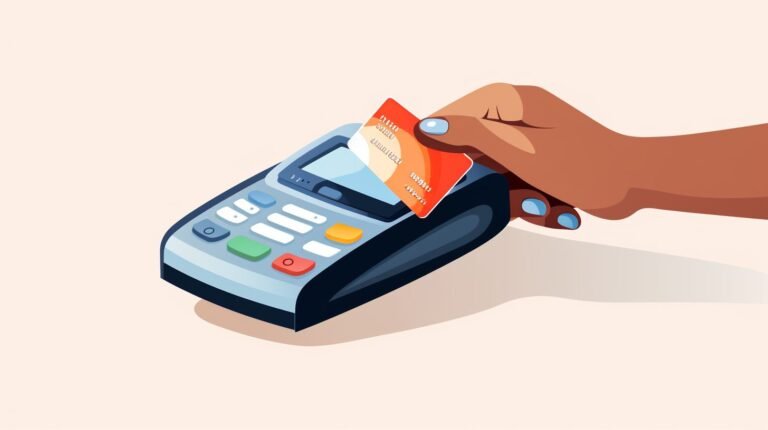How Medical Bills Affect Your Credit

Key Takeaways
- Unpaid medical bills can negatively affect your credit score and appear on your credit report, potentially making it harder for you to access credit in the future.
- Medical debt collections can significantly lower your credit score and stay on your report for seven years, but paying off the debt within one year can prevent it from showing up at all.
- It is important to negotiate with healthcare providers, seek financial assistance programs, or explore debt consolidation options to effectively manage and reduce medical debt. Regularly monitoring your credit reports can also help maintain good financial health.
Understanding Medical Debt
Medical debt is a financial burden that arises from the cost of medical procedures or services not covered by health insurance.How it accumulates
Medical debt piles up fast. Maybe you get sick or hurt and need a doctor. You might need drugs or stays in the hospital. All these things cost money, even with insurance help. If you can’t pay right away, the bills add up. Over time, this becomes medical debt. It’s easy to feel lost when the debts grow bigger each day!Consequences of unpaid medical bills
If you don’t pay your medical bills, it can hurt your credit score. Most health care providers do not tell the credit bureaus about unpaid debt at first. But, if you delay for a long time, they might call a collection agency. This is bad news for your credit report. The collection agency will tell the credit bureaus about your debt and this hurts your financial health. After one year of non-payment, the medical debt shows up on your credit history. It’s also important to note that starting March 31, 2023, debts under $500 won’t show on reports anymore.How Medical Bills Influence Your Credit Score
 Unpaid medical bills can have a significant impact on your credit score, as they can be reported to the major credit bureaus and appear on your credit report.
Unpaid medical bills can have a significant impact on your credit score, as they can be reported to the major credit bureaus and appear on your credit report.Impact of medical bills on credit reports
Medical bills can make your credit reports look bad. If you don’t pay your medical bills, they might end up with a debt collector. Once there, they become medical collections on your report. This can hurt your credit score a lot. On March 31, 2023, things will get a bit better though. Credit reporting agencies won’t show any medical collections under $500 anymore. But still, large unpaid debts can pull down your credit score more than small ones do. So it’s best to avoid letting them get that far!Effect of medical debt collections on credit score
Medical debt collections can pull down your credit score. Unpaid bills above $500 left with collection agencies stay on your report for seven years. This long-term mark hurts your financial health. It affects important things like buying a house or getting a job. Yet, don’t panic too quickly! The three consumer credit-reporting agencies – Experian, TransUnion and Equifax – wait 365 days before adding the debt to your history. They give you time to sort it out without hurting your score. If you pay the amount within this period, it won’t show up at all. Keep checking AnnualCreditReport.com to make sure medical bills are paid and not damaging your scores anymore.The Connection Between Medical Debt and Credit Reports
 Medical debt can have a significant impact on your credit reports and ultimately affect your credit score. When unpaid medical bills accumulate, they can be turned over to collections agencies, which will then report the debt to the credit bureaus. This process of medical bills turning into collections can significantly lower your credit score and make it more difficult for you to access credit in the future. It is important to understand this connection between medical debt and credit reports in order to effectively manage your financial health.
Medical debt can have a significant impact on your credit reports and ultimately affect your credit score. When unpaid medical bills accumulate, they can be turned over to collections agencies, which will then report the debt to the credit bureaus. This process of medical bills turning into collections can significantly lower your credit score and make it more difficult for you to access credit in the future. It is important to understand this connection between medical debt and credit reports in order to effectively manage your financial health.The process of medical bills turning into collections
When medical bills are not paid, they can eventually end up in collections. Here’s how it happens:- Medical bill is sent: You receive a bill from your healthcare provider for services or treatments you received.
- Payment is not made: If you don’t pay the bill on time or make arrangements with the provider to pay it off, it becomes overdue.
- Provider attempts to recover payment: The healthcare provider may send you reminders or contact you directly to request payment.
- Provider sells debt to a collection agency: After a certain period of time, if the bill remains unpaid, the provider may sell the debt to a collection agency.
- Collection agency contacts you: The collection agency takes over the responsibility of collecting the debt and will start contacting you through phone calls, letters, or emails. They will try to collect the full amount owed, plus any additional fees or interest.
- Debt appears on credit report: Once the collection agency acquires the debt, they may report it to the three major credit bureaus – Experian, TransUnion, and Equifax. This negative information will appear on your credit report and can lower your credit score.
- Impact on credit score: Having medical debt in collections can have a significant negative impact on your credit score. It shows that you have unpaid debts and may make lenders hesitant to extend credit to you in the future.
How medical collections affect your credit score
When you have unpaid medical bills that are sent to collections, it can have a negative impact on your credit score. Medical collections are typically reported to the credit bureaus, such as Experian, TransUnion, and Equifax. These collections will then appear on your credit report and can lower your credit score. Having medical collections on your credit report indicates to lenders that you have had difficulty paying off your debts. This can make them hesitant to lend you money or offer you favorable terms for loans or credit cards in the future. Additionally, the higher the debt amount in collections, the more it can negatively affect your credit score. It’s important to note that not all healthcare providers report unpaid medical debt to the credit bureaus. However, if a collection agency is involved in trying to recoup payment for those bills, they may choose to report it as a collection account.Strategies to Manage Medical Debt
 To effectively manage medical debt, there are several strategies you can employ. One option is to negotiate with your healthcare provider to potentially reduce the amount you owe. Additionally, you can seek out financial assistance programs or medical billing advocates who can help navigate the complexities of medical bills and potentially lower your overall costs. Another strategy is exploring debt consolidation options, such as a personal loan, which may allow you to consolidate multiple debts into one manageable monthly payment. By taking proactive steps and exploring these strategies, you can work towards managing your medical debt and protecting your credit score.
To effectively manage medical debt, there are several strategies you can employ. One option is to negotiate with your healthcare provider to potentially reduce the amount you owe. Additionally, you can seek out financial assistance programs or medical billing advocates who can help navigate the complexities of medical bills and potentially lower your overall costs. Another strategy is exploring debt consolidation options, such as a personal loan, which may allow you to consolidate multiple debts into one manageable monthly payment. By taking proactive steps and exploring these strategies, you can work towards managing your medical debt and protecting your credit score.Negotiating medical bills
When dealing with unpaid medical bills, negotiating with healthcare providers can be a helpful strategy. Here are some steps you can take:- Review your medical bills carefully to ensure accuracy.
- Contact the healthcare provider’s billing department and explain your situation.
- Ask if they offer any financial assistance programs or discounts for uninsured or low – income individuals.
- Provide any necessary documentation, such as proof of income or hardship.
- Inquire about setting up a payment plan that fits your budget.
- If the initial negotiation doesn’t yield satisfactory results, ask to speak with a supervisor or escalate the issue.
- Consider hiring a medical billing advocate who can negotiate on your behalf.
Seeking medical bills forgiveness
When dealing with overwhelming medical bills, it’s important to explore any options for seeking forgiveness or reducing the amount owed. Here are some strategies you can consider:- Contact the healthcare provider: Reach out to the billing department and explain your financial situation. Some providers may be willing to negotiate a lower payment amount or offer a payment plan that fits your budget.
- Apply for financial assistance: Many hospitals and healthcare organizations have programs in place to assist patients with medical bills. These programs are often based on income and can help reduce or even eliminate the debt.
- Seek help from nonprofit organizations: There are nonprofits, such as the HealthWell Foundation and the Patient Advocate Foundation, that provide financial support to individuals struggling with medical bills. They may be able to help you navigate the process and find additional resources.
- Explore Medicaid or other government programs: If you meet certain eligibility criteria, you may qualify for government assistance programs like Medicaid. These programs can help cover past medical expenses and provide ongoing coverage for future healthcare needs.
- Consider debt settlement: In some cases, negotiating with collection agencies may result in a settlement where you pay less than the total amount owed. However, it’s important to carefully review any settlement offers and understand their impact on your credit score.
Dealing with medical debt through consolidation
Consolidation can help manage medical debt.- Negotiate with healthcare providers for a lower payment or discount.
- Set up a repayment plan to make manageable monthly payments.
- Hire a medical billing advocate to navigate the billing process and negotiate on your behalf.
- Seek financial assistance from organizations like the HealthWell Foundation or Patient Advocate Foundation.
- Consider a personal loan or debt consolidation loan to pay off medical bills in one lump sum.
How to Remove Medical Bills from Your Credit Report
 To remove medical bills from your credit report, you can start by understanding the dispute process and gathering all necessary documentation to support your case. Then, you need to contact the credit bureaus directly and formally dispute any errors or inaccuracies on your report. Be prepared to provide proof of payment or evidence that the bill has been resolved. Remember to follow up regularly with each bureau until the issue is resolved.
To remove medical bills from your credit report, you can start by understanding the dispute process and gathering all necessary documentation to support your case. Then, you need to contact the credit bureaus directly and formally dispute any errors or inaccuracies on your report. Be prepared to provide proof of payment or evidence that the bill has been resolved. Remember to follow up regularly with each bureau until the issue is resolved.Understanding the dispute process
When it comes to managing medical debt, understanding the dispute process is crucial. If you have a medical bill that you believe is incorrect or unfair, you have the right to dispute it with the credit bureaus. The first step is to review your credit report and identify any errors or discrepancies related to your medical bills. Once you’ve identified an error, you can file a dispute with the credit bureaus, providing them with evidence supporting your claim. It’s important to act quickly because unresolved disputes may negatively impact your credit score. Seeking guidance from professionals who specialize in navigating the dispute process can be helpful in ensuring that your rights are protected and that you understand how medical bills can affect your credit.When and how to request for medical debt removal
To have medical debt removed from your credit report, follow these steps:- Contact the credit reporting agencies (Experian, TransUnion, Equifax) by phone, mail, or online.
- Request a copy of your credit report to identify any medical debt that needs to be addressed.
- Review the report carefully for errors or inaccuracies in the medical bills listed.
- If you find any mistakes, gather supporting documentation to dispute the charges.
- Write a letter explaining the errors and include copies of relevant documents such as insurance statements or payment receipts.
- Send the letter and supporting documents to each credit bureau through certified mail with a return receipt requested.
- Keep copies of all correspondence and documentation for your records.
- The credit bureaus will investigate your dispute within 30 days and notify you of their findings.
- If they find that the medical debt is inaccurate or cannot be verified, they are required by law to remove it from your credit report.
- Monitor your credit reports regularly to ensure that the medical debt has been successfully deleted.
Does Having Medical Bills Affect Your Car Insurance Rates?
Does Having Medical Bills Affect Your Car Insurance Rates? The presence of medical bills can have a credit impact on car insurance rates. When determining premiums, insurance companies often consider an individual’s credit history. Outstanding medical bills may contribute to a lower credit score, leading to higher car insurance rates. It is essential to manage medical expenses and maintain a good credit standing to potentially secure more favorable car insurance premiums.






